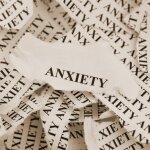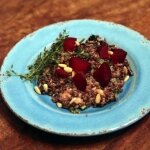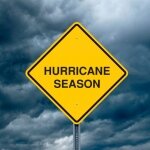We are a private pay treatment center and do not accept any type of insurance. Costs associated with care are the responsibility of the client.
Acidophilus, a Life-Saver

The day I walked into the health food store doubled over in pain about five years ago marks the most profound physical change I've ever experienced aside from my two pregnancies. I didn’t know what to do about this pain in my gut, but I knew it would continue until I found a way to make it go away.
I knew how to eat properly and what to avoid, and did cleanses from time to time, yet I was still suffering. Let me add that I’m the type of person who gets away with nothing. My body insists that I’m healthy and won’t accept excuses. If I refuse, it revolts in the most distressful ways and we become instant enemies.
For instance, if I don’t eat properly, I feel depleted, and if I consume too much fat or dairy, I am a prisoner of the toilet for longer than I care to mention. If I don’t sleep well, I end up looking for my cell phone while I’m talking on it, leave my keys in the refrigerator and can’t remember where my son’s best friend lives. I’m not kidding. If I don’t drink water constantly throughout the day, my body gives me the perfect headache until I ask myself aloud, Why is my head pounding? Then I remember what I’d forgotten to do. Drink! Eating too much sugar puts me in a mild coma. An abundance of acidic foods (green pepper, onions, anything fried, coffee, etc.) in my body creates a flatulent symphony that doesn’t quit until I take my magic potion.
The wonderful saleswoman at the health food store, after listening to my litany of complaints and observing my physical state of desperation, knew exactly what I needed and walked me right over to it. She handed me a bottle of acidophilus. I’d heard of it and knew it could be found in the digestive tract, as well as in dairy products like yogurt. It’s considered a probiotic because it helps restore the balance of helpful bacteria.
Then she said, “Don’t even bother with the tablets. You need liquid so you can assimilate it immediately and get out of pain.”
And that’s what I didn’t know. Liquid is better. If I could have gotten away with chugging it right then and there, I would have. I did some research later on after one dose made me feel about 50 percent better and found out acidophilus is not only a supplement for healthy bowel maintenance, but is also used to treat vaginal infections, yeast infections and lowering the risk of cancer, especially of the colon. You might also want to take it before taking antibiotics that kill all bacteria, even the good bacteria in your body, which is quite necessary.
When I thought about all the times my children had complained of stomach aches, and even though I had taken them off lactose long ago, I began giving them acidophilus in chewable tablet form, which comes in many flavors. When they are really desperate for a quick result, they gulp down the liquid, which tastes like yogurt. It also comes in dairy-free forms and you should look for the kind you like best.
The usual dose is one tablespoon after each meal, but a normal question is whether or not you can overdose on it. Dr. Andrew Weil, author of many health-related books including “Spontaneous Healing” (Ballantine Books, 2000), says no. But he does say it’s possible to waste money on products that don’t contain viable organisms, so check expiration dates and look for brands with Lactobacillus GG that has been shown to get into the intestinal tract when you swallow it.
Time to Garden – Spring is Coming

Where we are in Tennessee, we have recently had some warmer days and beaming sunshine to offset the winter gloom. With seasonal depression beginning to lift and the hint of spring in the air, it’s time to begin gardening!
Gardening is a great stress reliever and can reduce symptoms of anxiety and depression. As you work with the earth, your mind begins to clear and you focus on the soil, the landscape, and the endless possibilities for beauty! Even if you hire a gardener, watching your yard transform into a burst of color can have a calming effect and a feeling of accomplishment.
Do you love butterflies? Choose unruly perennials such as hollyhock, purple coneflower, aster, lavender, catmint, mallow, or stonecrop. Do you enjoy watching hummingbirds dart and chase each other? Choose fuchsia in hanging baskets or plant columbine, larkspur, daylilies, scarlet sage or verbena. The Old Farmer’s Almanac has a myriad of suggestions for tried and true gardening tips at www.almanac.com.
If you live in an apartment or don’t have much or a yard, try planting annuals such as snapdragon, impatiens or petunias in clay pots on your doorstep for some quick cheer. Succulents are a lot of fun to grow indoors in bright windows. Somehow, tending to something living and watching it bloom brings a bit of happiness. It’s not too early to start seedlings indoors, so wield your shovels: Spring is coming!
Our Different Learning Styles

Montessori School has some interesting teaching methods. My son attended Montessori for two years of pre-school and his kindergarten year, and I can still see the effects of Montessori on how he learns now. He likes to learn by doing. He doesn’t want a lecture or a book to read. He might briefly watch an instructional video then go at the task on his own; trying, perhaps failing, and trying again. For collision repair, this seems to work well for him and I have been very proud of the cars and motorcycles with his name attached as the paint and body technician. All those frustrating years of trying to get him to read were in vain, but he has emerged with brilliant talent in his chosen art.
Technically, there are considered to be seven styles of learning, or “multiple intelligences.” It is understood that humans all have different preferences and/or strengths in these seven areas. Learning-styles-online.com defines the seven styles as:
- Visual (spatial) – preference for using pictures and images
- Aural (auditory-musical) – preference for sound and music
- Verbal (linguistic) – preference for words in speech and writing
- Physical (kinesthetic) – prefer to use body, hands and sense of touch
- Logical (Spock. Just kidding… Mathematical) – preference for logic, reasoning and systems
- Social (interpersonal) – prefer to learn in groups/with other people
- Solitary (intrapersonal) – prefer to work alone and use self-study
I am definitely a verbal learner, and my son is a physical learner. His favorite school lesson that he remembers from second grade was pouring a bucket of water down the hill on the playground dirt to see the effects of erosion. Sheldon of the television series Big Bang Theory would be a logical learner, while every kindergarten student in America is at one time or another an auditory learner as they sing the alphabet song, numbers songs, President songs, and various nursery rhymes.
It isn’t just history or information or career skills that we need to learn by using these seven styles. There are times in our lives that we encounter trauma, loss, stress, conflict and illness. The seven styles still apply as we learn coping skills, relaxation, and therapeutic remedies such as distress tolerance and emotional regulation. For those suffering from depression, anxiety, addictions or have a dual-diagnosis, Brookhaven Retreat offers comprehensive recovery therapy using all seven learning styles. Core therapy groups, individual therapy, art therapy, reflexology, solitary projects, and equine therapy are just a few of the methods employed at Brookhaven Retreat to accommodate all seven learning styles. Call one of our representatives to see how Brookhaven Retreat can help you learn how to create a life worth living.
Want To Get Dinner Soon?

“Want to get dinner soon?” This is a common phrase that accompanies friendships, begins relationships and builds family ties. Eating out is at the core of our social wellness. It provides a neutral ground for first dates or a convenient meeting point to reminisce and catch up with old friends. But the concept that eating out is to be done socially makes a table for one taboo.
I chose to eat alone, once. I was in Thailand with my sister and a group of about 13 strangers that were part of the same travel company. We had been together almost every moment for over two weeks, and I found myself in need of alone time, away from everybody. So, while everyone was on the beach I went to each lunch alone at a restaurant overlooking the turquoise waters of the Gulf of Thailand. At first I did not know what to do with myself. It was awkward. Where do I put my hands? Where do I look? Most who eat alone are accompanied by their smart phones which connects them to everyone they tried to escape, but my phone didn’t have service, so that was out of the question. I felt like everyone was staring at me, assuming they all thought I was depressed. I almost left, until I ordered my food and decided I was now stuck and must make the best of it.
Once I finally let go of my social anxiety and judging myself, I instantly felt relaxed. I did not have to converse with people, I could just sit and enjoy, truly appreciating the fact that I was on a tiny island in Thailand, otherwise known as the most beautiful place on Earth. Eating alone served as a moment of “me time” an act of self-care that although I was on the trip of a lifetime, I was lacking.
I am probably what many would call a “people person”. I need social interaction pretty regularly to feel fulfilled and energized. Eating alone never appealed to me because I quickly think, “Why waste an opportunity to get together with the people I love”, and after that one perfect experience, 7 months went by and I never ate alone again. Until, one day I had planned to meet my friend for brunch downtown. It was probably the prettiest fall day in Tennessee, and everyone was outside enjoying the perfect 70-degree and sunny weather. I decided to go ahead and get a table outside while I waited. And for those brief 15 minutes, I was quickly reminded of just how much I enjoyed this moment of alone time.
Even though I still felt like my waiter pitied me every time he came by to check on me, and I was a little nervous I would see a familiar face that would be concerned for my mental health, I felt at peace, and truly enjoyed spending time with my self.
They say do something every day that scares you, and eating alone can be really scary for those who struggle with social anxiety and low self-esteem, or for those who just simply have never tried it before. If you’re skeptical, try arriving 15 minutes early before meeting someone and ask for a place outside or a cozy booth. Best of all, you can order a delicious dessert first without having to share.
Football and Painkillers

The NFL Super Bowl kicks off this Sunday February 1, bringing the 2014 - 2015 football season to an end. Super Bowl Sunday means dips, chips, funny commercials and Buffalo wings. Football games are often a time of camaraderie, rivalries and fandom. Many studies have even shown a link between reduced depression and better mental health thanks to the sense of community sports fans feel.
However there is another major component of the NFL that doesn’t get the same airtime as the Super Bowl - prescription painkillers. According to a lawsuit filed by a group of former NFL players, the NFL allegedly administered illegal painkillers to injured players that numbed their injuries and led to addiction and substance abuse.
In addition to the physical pain that is masked by narcotics and prescription drugs, one’s emotional pain becomes numbed as well, blocking out depression, emotional breakage and grief. The opioids that are often prescribed for physical relief stimulate euphoria in the brain’s reward center. This euphoria puts users at risk of getting trapped in the vicious cycle of dependency.
Unfortunately these former players are not alone. The National Institute of Drug Abuse states that 2.1 million Americans suffer from substance abuse related to prescription painkillers, and anywhere from 26.4 million to 36 million people worldwide.
Brookhaven Retreat believes that addiction and substance abuse are not stand-alone disease in themselves, but are often symptoms of a larger illness such as depression, borderline personality disorder and anxiety disorders. In order to stop these negative and empty feelings, many women self-medicate with pain killers. Brookhaven Retreat helps these women safely detox from drugs or alcohol and explores safe alternatives for managing any chronic pain. Once detoxed, each client works directly with her primary therapist to uncover the root cause of her self-medication. Brookhaven Retreat’s healing environment encourages self-esteem and self-love to being nurturing their physical, emotional and mental health, breaking the cycle of shame, emptiness and dependence.
Beet and Carrot Salad with Citrus Vinaigrette

This delightful beet and carrot salad is loaded with vitamins and minerals such as betaine, known for helping with depression, and tryptophan, which can relax our mind and reduce anxiety. This mood-boosting salad is the perfect addition to any dinner, and couples wonderfully with last week’s recipe, Happiness Soup!
Ingredients:
- 2 beets, about 1 lb. (500 g) total
- 1 bunch of carrots, about 1 lb. (500 g)
- 1 orange
- 3 Tbs. fresh lemon juice
- 1/2 tsp. grated lemon zest
- 1/4 cup (2 fl. oz./60 ml) walnut oil
- Kosher salt and freshly ground pepper, to taste
- 1/4 cup (1/4 oz./7 g) fresh julienned spinach leaves or parsley
Directions:
- Using a mandolin, thinly slice the beets.
- Use the mandolin to thinly slice the carrots lengthwise.
- Grate the zest of the orange and set the zest aside.
- Using a sharp knife, cut a thin slice off both ends of the orange, then cut away the peel and pith.
- Cut on either side of each segment to free it from the membrane.
- In a small bowl, whisk together the orange zest, lemon juice, lemon zest, walnut oil and salt and pepper to taste.
- In a large bowl, toss the beets with a third of the vinaigrette and divide among 4 to 6 plates.
- In a separate bowl, toss the carrots with another third of the vinaigrette and arrange the carrots on top of the beets.
- Drizzle with the remaining vinaigrette and top with the orange segments and parsley.
- Season with salt and pepper and serve immediately.
Serves 4 to 6.
SOURCE: Williams-Sonoma Test Kitchen
Relationships

Whitney Houston, in her song The Greatest Love of All, sings “I found the greatest love of all inside of me… Learning to love yourself, it is the greatest love of all.” Sometimes we think that the key to a successful marriage or relationship with our family is to have things in common, have patience, and accept others’ challenges. Undoubtedly these are important factors in having a successful relationship. But regardless of how much we give to others and make adjustments to accept the difficulties of others, if we don’t have a healthy relationship with ourselves, we will always struggle in relationships with others. That’s not to say that having a healthy relationship with ourselves is easy to come by. In fact, in some cases it can be a lot harder than maintaining a healthy relationship with others.
This is where the importance of mental health, depression and mood disorder treatment comes in. If we are not able to successfully negotiate a healthy relationship with ourselves, perhaps because of a harsh inner-critic or past trauma, then it takes an often uncomfortable commitment to receive counseling. But once again, if ultimately it’s a desire for a healthy desire with others, we need to be able to have a healthy relationship with ourselves first. Counseling is not meant to be comfortable or easy and becoming a friend of yourself is quite difficult.
I once worked with someone who came to see me because of trouble in several different relationships but primarily in her relationship with her husband. We did an exercise where she was asked to list the qualities she felt were important in her relationship with her husband. Of course she came up with love, understanding, attraction, and connection among other things. When I asked her to list what qualities she thought were important in her relationship with her she stared blankly at me and struggled tremendously to come up with anything. In fact I had to send her home to consider her relationship with herself.
Part of the problem is that we are so strongly brought up to please others and to make sure that in a relationship we are giving the other person what they want that we neglect to develop the relationship with ourselves. We forget, or maybe never learned, that we must love ourselves before we can love someone else. Help is available, but learning to love yourself is not easy. As long as you’re willing to do the work, however, you will find that once you love yourself, your other relationships will become infinitely easier to healthily manage.
Opening Our Time Capsule

I remember in 2000 each of my fourth grade classmates and I made a time capsule that we weren’t supposed to open until we turned 18 years old. In it I added my friends’ yearbook pictures, a class t-shirt, my favorite book and some “about me” papers. Unfortunately, I think I opened it a year or so later and it has been halfway open in my storage ever since.
Time capsules are really neat, and provide insight into a time we may not remember, or have been alive to experience. For example, this month conservators got a unique insight into the world nearly 200 years ago when they opened Paul Revere and Sam Adam’s time capsule. Buried in Boston in 1795, Adams and Revere did a much better job than I, patiently waiting for someone to see what they put inside their capsule which included: five newspapers, at least 24 coins, a commonwealth seal of Massachusetts, and a silver plate.
Since making my time capsule 14 years ago, I have grown from an elementary school child with anxiety over friendships and zero self-confidence to an adult who is emotionally, socially and mentally balanced. Sometimes I think I forget how much can change, and that this evolution was not easy for me. I struggled with grief after the loss of my mom from depression and addiction; went through the stress of a new family structure developing; and completed middle school, high school and completed my degree at the University of Tennessee. In just 14 years I somehow managed to transform into an adult right under my very nose.
Whether it is 2 years or 200 years, it is a neat opportunity and even a therapeutic one, to look back at our own time capsules, even if it is just metaphorically, and remind ourselves just how much progress we have made, often without even noticing.
Fear of Flying? The New Reason To Travel With Your Phone

We have all heard the tragic news of the AirAsia flight, the missing Malaysia Airlines plane, the flight MH17 horror, and most recently the small plane crash in Kentucky that left a lone seven-year-old survivor. The past year has been a disastrous one for flight safety advocates, making it no surprise that roughly 20 million people suffer from aviophobia (the fear of flying).
Aviophobia is an anxiety disorder that is marked by an increase in heart rate, overwhelming stress, nervousness and avoidance of flying or airplanes all together. Many adults with aviophobia choose to self-medicate using alcohol or prescription medications to relax their fear of flying high. Phobias like aviophobia are often complicated to move past because the many components that form this fear, including fear of enclosed spaces (claustrophobia), fear of crowds (agoraphobia), fear of heights (acrophobia) and an overall lack of control. However despite the fact you may reach 30,000 feet in the air while jetting across country, air travel remains the second safest form of travel, right behind taking the escalator.
For those like my sister, who are brought to tears every time a plane takes off, the irrational fear of flying may be best managed through the art of distraction. And of course what is more distracting to us than our smart phones? With more relaxed cell phone restrictions on flights, phone companies like Apple and Samsung have finally created an app that aims to reduce our in-flight anxiety; in fact, there are quite a few apps for that. These smartphone apps, including SOAR and VALK Flight, use therapeutic intervention such as cognitive behavioral therapy, distracting games and educating users on the facts of flying and what to expect during takeoff and landing.
Even though air travel is safer than driving, biking or walking, approximately 6.5 percent of the population suffers from aviophobia. And as long as every flight crash, scare or minor incident continues to make front-page news, that statistic is likely to stay. But that doesn’t mean you have to give up family vacations, business trips or romantic getaways, instead try turning off the news and turning on your smartphone.
Eating Ourselves Depressed

From our joints to our sinuses, inflammation affects nearly all of the body’s functions. Long-term inflammation, or chronic inflammation, can lead to increased tissue destruction, fibrosis and even depression and anxiety. Although inflammation is caused from a variety of factors including physical injury, infection or toxins, recent studies indicate stress, trauma and diet play a major role in producing cytokines that trigger inflammation in the body.
In recent years, more scientists have turned their focus toward diet and nutrition as a key factor in reducing inflammation and recovering from depression, bipolar disorder and other mood disorders. Cytokines trigger inflammation in the body, and these proteins rise considerably in depressive episodes of bipolar disorder and drop significantly during periods of lull. Studies have proven time and time again that a diet rich in trans fat and processed sugar can dramatically amplify inflammation levels. There is hope though, eating healthy and avoiding certain foods can significantly lower mental illness and improve our body, mind and emotional wellness. The website “Mind Body Green” offers a list of six inflammatory foods to avoid as part of a complete diet:
- Cow Dairy: Our body does not digest dairy easily, especially that from a cow. A good alternative would be sheep or goat dairy that contains a less inflammatory form of casein and is easier on digestion.
- Wheat Flour: Instead of wheat flour when baking opt for almond or coconut flour, which are minimally processed.
- Processed Sugar: Avoid eating processed sugars such as candy, cake, cereal and foods that you may not expect like barbeque sauce or spaghetti sauce. If you need to sweeten your food substitute for raw honey, liquid stevia or simply eat some fruit.
- Sodium: Much like sugar, sodium is in almost everything packaged from the store including salad dressings, frozen meals and instant soups. Avoid high sodium foods and when cooking try sea salt or pink Himalayan salt as a nice alternative.
- Certain Oils: Canola oil, vegetable oil and partially hydrogenated oil are highly processed and can trigger inflammation in the body. Instead switch to extra-virgin olive oil, coconut oil, chia seeds or avocado oils, which are rich in anti-inflammatory omega-3 and omega-6 fatty acids.
- Alcohol: Not only is alcohol a depressant, it is frequently abused and may lead to addiction and chronic illness. Alcohol is one of the most inflammatory foods out there, and replacing it with bubbly water or green tea we will see drastic changes in our health.
Copyright © 2015 Brookhaven Retreat, LLC. All rights reserved. Privacy StatementReport a Problem with this Site
It should be understood that any persons in pictures displayed on this page are models, and the pictures are used for illustrative purposes only.
























































